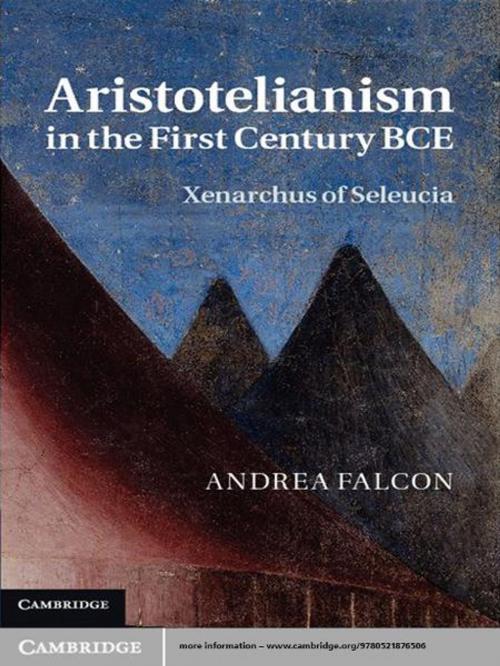Aristotelianism in the First Century BCE
Xenarchus of Seleucia
Nonfiction, Religion & Spirituality, Philosophy, Ancient, History| Author: | Andrea Falcon | ISBN: | 9781139199582 |
| Publisher: | Cambridge University Press | Publication: | December 15, 2011 |
| Imprint: | Cambridge University Press | Language: | English |
| Author: | Andrea Falcon |
| ISBN: | 9781139199582 |
| Publisher: | Cambridge University Press |
| Publication: | December 15, 2011 |
| Imprint: | Cambridge University Press |
| Language: | English |
This book is a full study of the remaining evidence for Xenarchus of Seleucia, one of the earliest interpreters of Aristotle. Andrea Falcon places the evidence in its context, the revival of interest in Aristotle's philosophy that took place in the first century BCE. Xenarchus is often presented as a rebel, challenging Aristotle and the Aristotelian tradition. Falcon argues that there is more to Xenarchus and his philosophical activity than an opposition to Aristotle; he was a creative philosopher, and his views are best understood as an attempt to revise and update Aristotle's philosophy. By looking at how Xenarchus negotiated different aspects of Aristotle's philosophy, this book highlights elements of rupture as well as strands of continuity within the Aristotelian tradition.
This book is a full study of the remaining evidence for Xenarchus of Seleucia, one of the earliest interpreters of Aristotle. Andrea Falcon places the evidence in its context, the revival of interest in Aristotle's philosophy that took place in the first century BCE. Xenarchus is often presented as a rebel, challenging Aristotle and the Aristotelian tradition. Falcon argues that there is more to Xenarchus and his philosophical activity than an opposition to Aristotle; he was a creative philosopher, and his views are best understood as an attempt to revise and update Aristotle's philosophy. By looking at how Xenarchus negotiated different aspects of Aristotle's philosophy, this book highlights elements of rupture as well as strands of continuity within the Aristotelian tradition.















